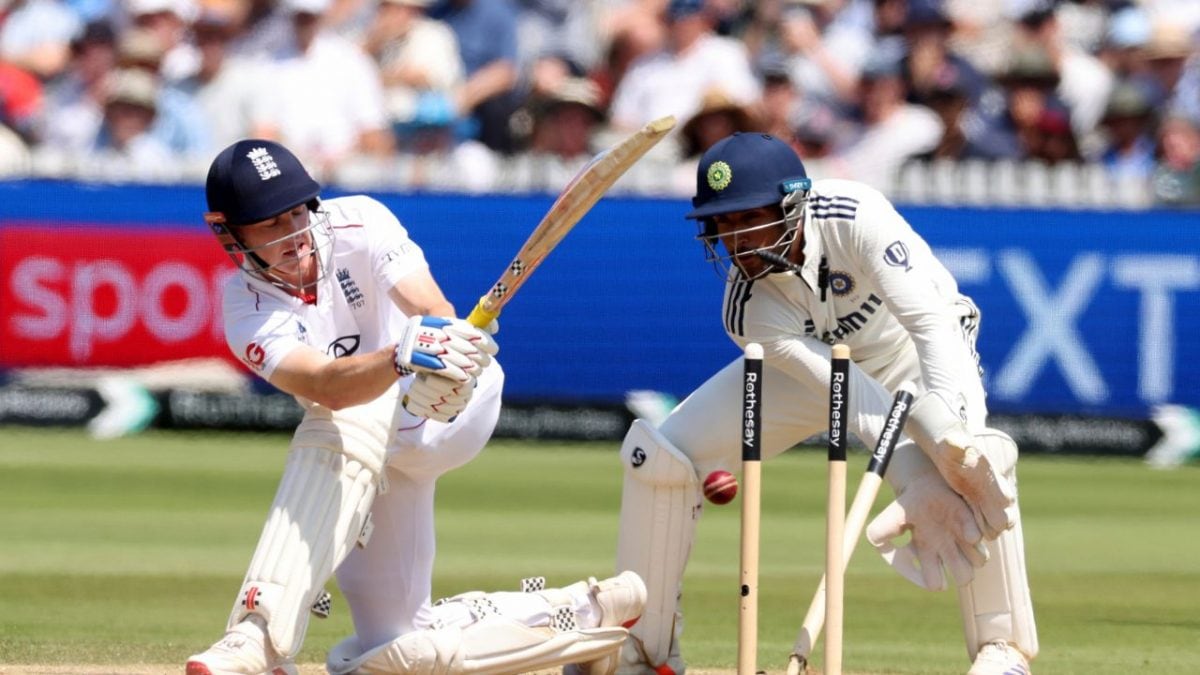

Harry Brook's dismissal on Day 4 of the Lord's Test between England and India has ignited a storm of criticism, with former cricketing greats like Kumar Sangakkara and Ravi Shastri leading the charge. Brook, often celebrated for his aggressive and attacking batting style, found himself under intense scrutiny for a rash shot selection that ultimately cost him his wicket at a crucial juncture of the match.
England were already facing significant pressure, having lost quick wickets in the opening session of their second innings. Brook's arrival at the crease was met with high expectations, but his response was deemed overly aggressive. He attempted to seize control by targeting Indian pacer Akash Deep, hitting him for two boundaries and a six in quick succession. However, this intent soon morphed into recklessness.
In the 20th over, Brook misread a field adjustment made by Shubman Gill, who had moved the fine-leg fielder deeper in anticipation of another aggressive shot. Instead of opting for safer singles or doubles, Brook attempted a slog-sweep, a shot that failed to connect cleanly, resulting in the ball crashing into the stumps.
Kumar Sangakkara, a former Sri Lankan captain and respected commentator, didn't hold back in his assessment of Brook's dismissal. "It is just arrogance. Not even Bazball," Sangakkara stated bluntly. He elaborated, "Harry scored 15 runs against Akash Deep and then played a silly shot — that's arrogance". Sangakkara, commentating for Sky Sports, was particularly scathing, describing the dismissal as a moment of "arrogance" rather than confidence or tactical aggression. He suggested Brook should have simply flicked the ball into the gap provided instead of attempting the risky sweep. "You're counter-attacking, and that is a big, big mistake," he concluded.
Ravi Shastri, the former India head coach, echoed Sangakkara's sentiments, expressing disappointment at Brook's shot selection during such a critical phase of the game. Shastri described the shot as a "nothing shot," emphasizing that the risk element was exceedingly high, especially considering the minimal potential reward. "He was only going to get one run even if he connected. The risk element was huge," Shastri stated. Shastri acknowledged Brook's destructive potential but felt he was too good a player to put his wicket at risk at that stage. He believed Brook had unsettled the bowler and earned the field change he desired, suggesting he should have then settled in to force the bowler to deliver a good ball.
Stuart Broad, the former England fast bowler, also weighed in, suggesting that Brook should have taken more time to settle at the crease before attempting such a risky shot.
The dismissal quickly became a talking point among cricket fans and analysts, with many questioning Brook's temperament and decision-making under pressure. Some fans even labeled Brook as "overrated". James Buttler, a social media user, wrote, "That isn't clever batting from Harry Brook. He's an exceptional player, but that shot selection was highly misjudged".
Brook's dismissal wasn't the first time his technique has come under scrutiny. In the first innings of the same test, he was bowled by Jasprit Bumrah, leading to criticism of his tendency to set up outside off stump, making him vulnerable to incoming deliveries. Kumar Sangakkara had previously advised Brook to consider a tactical shift in his stance, suggesting a more traditional setup.
The criticism leveled against Brook highlights the ongoing debate surrounding England's aggressive "Bazball" approach to Test cricket. While the strategy has brought success at times, it has also been criticized for its recklessness and lack of adaptability in certain situations. Some analysts, like Sanjay Manjrekar, believe that England may need to temper their aggressive approach and adopt a more traditional Test batting style, especially on challenging pitches. Ollie Pope, England's vice-captain, hinted at a shift in approach, acknowledging the need for adaptability and a balance between attack and absorption.